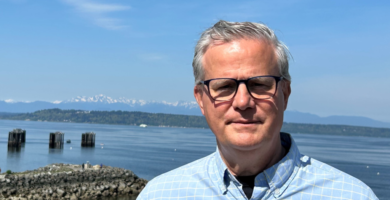For most of this month, a series of wildfires has wrought death and destruction in the Los Angeles area. The summer--hotter, drier and longer than usual--turned trees, homes and much else into tinder. While it has yet to be determined what was/were the match(es), so to speak, that sparked the conflagrations, we know that they were fanned by historically strong Santa Ana winds. According to two separate studies--one from the University of California-Los Angeles (UCLA), the other from World Weather Attribution, a collaboration of international scientists--the L.A. fires bear "fingerprints" of climate change in the increasingly hot and dry conditions of the area, which can be linked to heat-trapping gases emitted by burning fossil fuels.
We all know that climate change isn't only about this day's or season's weather; it's about long-term trends. Researchers now agree that Earth has been heating and drying at an faster pace during the mid-to-late 19th Century, or about two or three generations after the Industrial Revolution began. But there are particular events that can be said to have been accelerants to the fire, so to speak.
One of those events, like many others, was the passage of a piece of legislation--in this case, a local ordinance--which had broader and more dire consequences than anyone at the time could have imagined.
I am referring to the Traffic Ordinance for the City of Los Angeles. Passed exactly a century ago last Friday, this 35-page piece of legislation, among other things, increased speed limits for automobiles so that they were faster than streetcars, of which the "City of Angels" had the largest network in the world. It also gave primacy to automobiles on the city's streets in other ways: For example, pedestrians were forbidden from walking or crossing except in narrowly-defined spaces. While touted as a way to decrease the number of conflicts between autos and pedestrians, and to thus increase "safety," the ordinance had the effect of turning over the streets to motorized traffic and sharply increasing the number of traffic fatalities, especially among children and the elderly.
The Ordinance was drafted by Miller McClintock, a Harvard doctoral student of municipal government. Perhaps one could have forgiven him for not understanding the consequences of his actions; after all, automobiles were seen as "progress" and modernity. But he was, in fact, recruited by one Paul Hoffman, a staunch champion of the auto industry. In contrast to McClintock, Hoffman dropped out of the University of Chicago at 18--and began to sell Studebakers. By the time he enlisted McClintock, he was close to making his first million dollars and had been appointed chairman of the Los Angeles Traffic Commission--a body responsible for regulating the city's streets.
 |
| A street in downtown L.A. on the eve of the ordinance. |
If you have seen Los Angeles at almost any time since the ordinance passed, you might find it difficult to believe that it had the world's largest streetcar network--or that was as much of a cycling city as Copenhagen and Amsterdam are today. Similar descriptions could have been made of San Francisco, New York, Chicago and other American cities. But those places, and others in the US, quickly went, to one degree or another, the way of Los Angeles. And the Ordinance also influenced the planning of cities that barely existed at the time it was drafted: the ones where sidewalks and public transportation are non-existent and the only way to get to work, school or shop is on "stroads," which have no provision for anything that doesn't have a motor and at least four wheels.
So what does the Ordiance or its influence have to do with the wildfires? Well, plenty, if scientists are correct in finding climate change's "fingerprints" in the blazes: Transportation is responsible for the largest share of greenhouse gases, and the large number of private automobiles are the biggest culprits among all forms of mobility.









